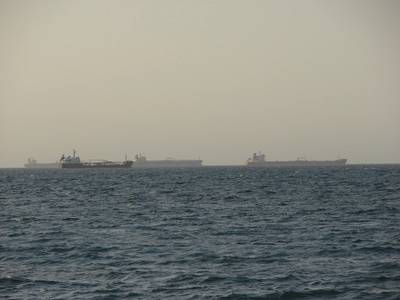Tanker Backlog Grows in Venezuela as PDVSA Struggles to Deliver Oil
A bottleneck of vessels waiting to load crude and fuel in Venezuela has increased in recent weeks as state-run oil firm PDVSA struggles to deliver cargoes on time, according to people familiar with the matter, documents and shipping data.
PDVSA has sought to ramp up shipments this month, the documents and data showed, following setbacks in January as outages at Venezuela's main port hit its exports. But the increase has been insufficient to ease the congestion.
As of Monday, at least 19 supertankers were waiting to load near Venezuela's Jose and Amuay ports, where most exports are shipped from, up from about a dozen at the end of November.
"I have two clients waiting since early January for cargoes negotiated last year, and they have not even been assigned loading windows yet," a maritime agency source told Reuters.
PDVSA did not immediately reply to a request for comment.
The U.S. Treasury Department in October extended a six-month license to Venezuela approving oil exports to its chosen destinations as a way to encourage a fair presidential election this year. But Washington has said President Nicolas Maduro has fallen short of his promises, and it could reverse that sanctions relaxation in April.
Vessel monitoring data from financial firm LSEG and PDVSA documents show some tankers, mainly bound for destinations including India, Malaysia and China, have been waiting since December. Cargoes bound for the United States also are facing delays, but not as long as the ones to Asia.
The growing delays have forced some tanker operators to choose shipping agents that can secure provisions for the crew for extended periods. Others have been waiting near Aruba, Curacao and Trinidad to have better access to supplies, the people said.
PDVSA has told many customers it does not have enough exportable crude inventories to accelerate deliveries, the people added.
Last week, PDVSA's heavy crude stocks at its main storage hub, the Jose port, rose to some 6.8 million barrels from 5.32 million barrels at the end of January. However, inventories of diluents needed to produce exportable crude grades declined, one of the documents showed.
A possible lack of crude to fulfill all cargoes negotiated since October could force some ship owners to leave Venezuelan waters empty handed in coming months if Washington reimposes the sanctions, even after having waited for months to load, according to the people.
(Reuters - Reporting by Marianna Parraga, additional reporting by Mircely Guanipa; editing by David Evans)














